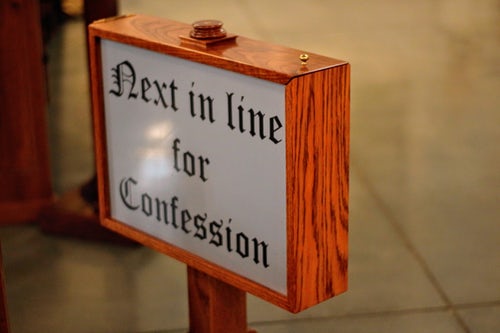Do you have any nagging bad habits—character defects—you just can’t seem to get a handle on or conquer, in spite of all your efforts?
Maybe they’re defects (imperfections, sins, weaknesses, faults, flaws, deficiencies, shortcomings, inadequacies) you’ve decided to blame on your genes or behaviors your parents or parents’ parents have passed down to you.
Or perhaps you point your finger at your present or past circumstances—poor home nurturing while you were growing up, bad marriage, or just bad luck.
But what about those choices we make that undermine our physical, emotional and spiritual health? How do those fit into the puzzle, and what can we do about them?
Why are defects so hard to get ride of or conquer?
We moan and groan and cry out to God—sometimes repeatedly—to fix us, for Him to snap His mighty fingers and make all of the problems and issues go away.
But it often doesn’t happen. Why is that? Why do our defects seem to cling to us like sticky paper clings to our fingers? Several reasons come to mind:
- We have the defects so long that they’ve become a part of us and morphed into nearly unbreakable habits.
- Defects are also hard to conquer because we’ve learned to identify with them, and they’ve become comfortable parts of us.
“Oh, no, Andrea,” you say. “I don’t want it to be part of me!”
But maybe you do.
Think about how often you use your defect to define yourself. You say to yourself Well, that’s just the way I am. Or you talk about yourself as being an impatient or anxious person; a partier that loves to socialize and have fun with the crowd. Or you mask your controlling nature by saying you’re organized and just want to make sure things get done the right way.
You see an 80-hour workweek as a badge of productivity, although, if you’re honest, you were really pretty busy but not very productive.
How much do you identify with your defect? The more you identify with it, the more likely it is that your life becomes a self-fulfilling prophecy. You’ve conditioned your brain, and your behavior, to automatically default to the defect because it’s comfortable and familiar. It’s easier to go along than it is to combat it.
- Sometimes we hang onto our defects because they give us big payoffs.
One benefit of leaning on your defect may be that you can use it to avoid responsibility. For example, procrastination allows us to get out of things we didn’t want to do in the first place.
Defects can also get us the attention we desire. Having temper tantrums that make others walk around on eggshells gets attention. People will tend to try to placate you rather than go to battle with you.
What’s the down side to that? Those people don’t want to spend time with you, so they do everything they can to make sure they avoid you or make minimal contact with you.
They can also get us sympathy. Know anyone that likes to brag about their problems, the load they continue to carry around with them you know they could drop if they wanted to?
- Another benefit of a defect is using it as an excuse to fail.
I remember when I was in 7th grade, struggling in a math class. I got a C one quarter and went to my mom to break the bad news. (I’d always managed to do fairly well in math up until that point.) I was fearful she’d reprimand me. But that didn’t happen. Instead, she gave me a response that would plague me the rest of my life:
“Oh, that’s okay. I wasn’t very good in math either.”
And that was it—a “fact” I glommed onto as my own fate. After all, I was born with “bad math” genes, so why work harder or expect more from myself? The instant relief I felt was wonderful. The long-range results, not so good.
Years later, in late high school and college, I learned that my “bad math” genes could be rectified with harder, more concentrated labor and maybe some tutoring. But by then the damage had been done. I still told myself I just wasn’t very good at math. And I t stifled my career choices and academic success.
That doesn’t mean I could have been an engineer or physicist. But who knows? If I had been given a more positive, constructive response, I might have overcome and excelled in math.
- Another problem we have shedding our defects is that we buy into the accusations the Deceiver whispers in our ears.
We just know we’re failures; that we can’t be helped; that we’ll never change, in spite of God saying that we can. And then we wallow around in grief over our plight and failures.
So who do you think is right? Who are you willing to put your trust in on this one?
Solutions to conquering our defects—
There are ways to combat our defects. Successful ways. And in the six weeks we’re going to look at ways to combat and conquer! Ways that will remake and reshape us. Ways that will renew our minds and behaviors.
Fair warning: some of the ways might be tough. But be assured, God is in the change and makeover business, and He stands by willing and able to help us succeed.
Preparing for next week—
As you look forward to next week’s blog post, I encourage you to take inventory on your defects, the things you’d like to change. The things you’re ready to change. Pray for God to reveal them to you. Write them down. Pray over them. And prepare for the work we’ll be doing this month.
Until then,
decide in your heart, and with your actions and words, that you’re going to stop making excuses for yourself or your family or circumstances and head out on the path of change. The path that will give you a more abundant and satisfying life!
Blessings,
Andrea
“Certainly there was an Eden….We all long for it, and we are constantly glimpsing it.” —J.R.R. Tolkien


